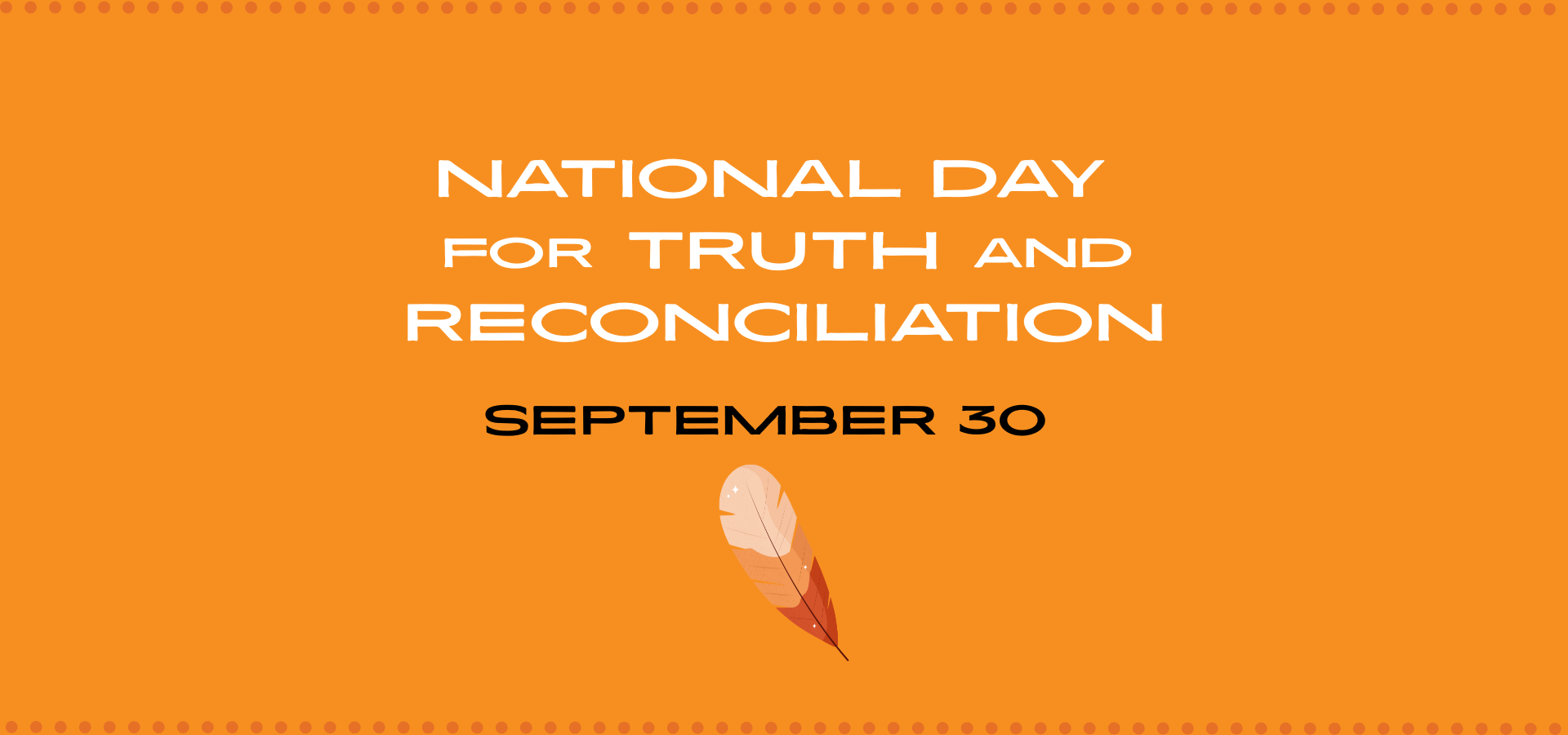On September 30, we join people across the country in recognizing the National Day for Truth and Reconciliation. This day is an opportunity to pause, reflect and honour the Survivors of residential schools, their families, and their communities, as well as to remember the children who never returned home.
It is also known as Orange Shirt Day, inspired by Phyllis Webstad. Her story reminds us that Every Child Matters. Together we wear orange as a visible symbol of our collective commitment to truth, reconciliation and healing. Wearing orange reminds us of the resilience of Indigenous peoples and the importance of listening to and amplifying the voices of Survivors.
At CMHA, this day also calls us to reflect on what Truth and Reconciliation means in the context of the work we do together. Our efforts to support mental health and wellness are deeply connected to reconciliation, as we acknowledge the ongoing impacts of colonialism, intergenerational trauma, and systemic inequities faced by Indigenous peoples.
Ways to take meaningful action:
- Wear orange. Show your commitment to truth, reconciliation and the memory of those lost.
- Learn and listen. Read the Truth and Reconciliation Commission’s 94 Calls to Action and the MMIWG2S Calls for Justice. Seek out Indigenous-authored books, podcasts, and courses.
- Be present in the community. Attend local events, ceremonies, or teachings led by Indigenous peoples.
We stand with Indigenous peoples and commit to ongoing reconciliation with humility and respect.

